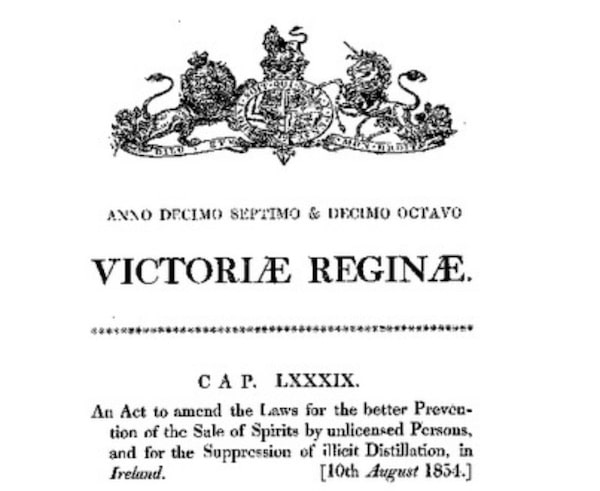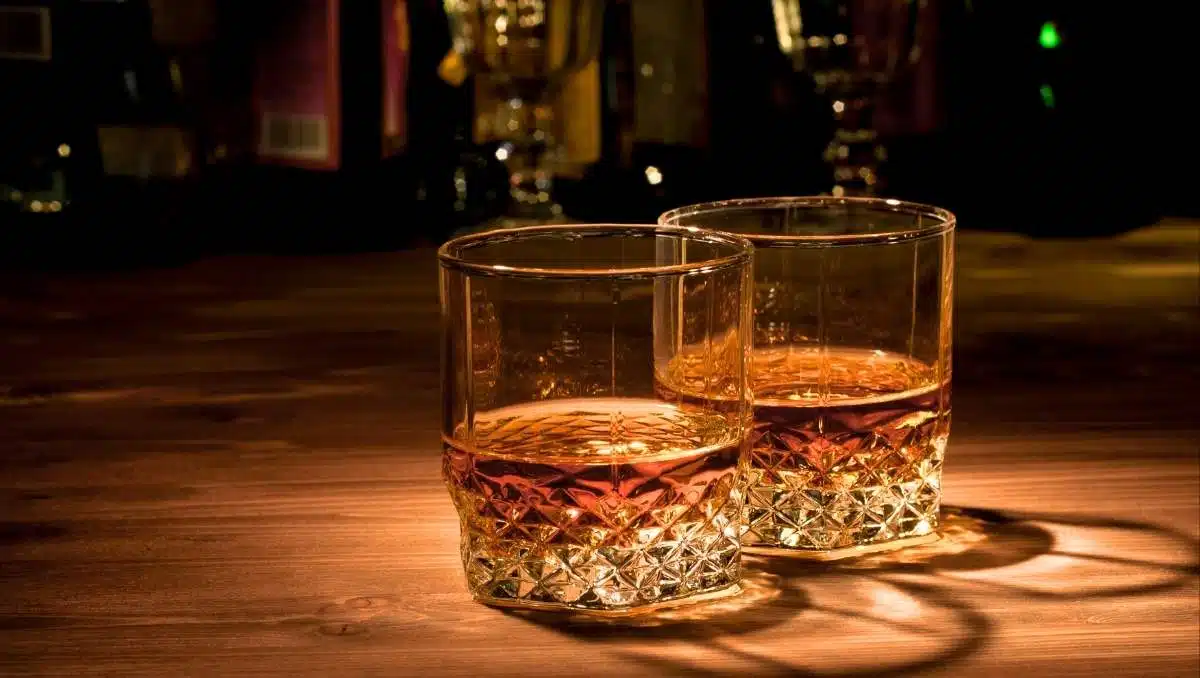The difference in the spelling of whisky and whiskey depends on where the spirit is made. "Whiskey" is made in Ireland and the USA, and "whisky", on the other hand, is primarily from Scotland, Canada, and Japan.
The dispute that led to the differentiation of whiskey and whisky started in the mid-1800s. It ended in the early 1900s when a group of leading Irish distillers finally decided to name their products with an 'e' to differentiate their superior products from the poor-quality products from Scotland.
In case you're wondering, the difference in spelling also exists in plural forms. One "whiskey" turns into multiple "whiskeys" but the plural of "whisky" is "whiskies".
So, if you are still confused about how all this happened, you have come to the right place. We will solve this mystery for you!
Whiskey vs. Whisky - How did the different spellings develop?
When researching the reason for the different spelling of the word by two countries geographically so close together, the term "uisge beatha" does come up. That is the original name of the spirit that eventually evolved into whisky and whiskey.
Many think that the different translations into Scottish and Irish Gaelic led to the two ways of spelling. But actually, it is more complicated and far more political than that.
In fact, until the late 1800s, there was only one translation for uisge beatha, which had been whisky without an e.
1. The Spirits Act
In the 1850s, the British-Irish government passed a law that allowed the production of blends of grain whiskies and single malts, the so-called Spirits Act.
This law enabled Scottish Whisky producers to make products similar to Irish whiskey but at much lower costs. And because the Scots also did a brilliant job in marketing, they soon were a thorn in the side of Irish Whisky distilleries.

2. The dispute that led to whiskey with an e
At that time, Ireland was responsible for about 70% of the world's whisky production. So, the country had a massive influence in this field.
Therefore, in response to the Spirits Act, the four largest Irish distilleries teamed up and wrote a book. In it, they explained that using grain whisky in blends can by no means make a product that deserves the name whisky at all.
That book, in turn, led to a dispute which ultimately was settled by the Royal Commission in 1908. Despite everything, they decided that blended products can indeed be called whisky.
Whiskey with an 'e'
For reasons unknown, the commission spelled whiskey with an e in their report. Henceforth, to distinguish their high-quality products from subpar Scottish blends, many Irish distilleries began using just that way of spelling. And that is how the world ended up with two ways to spell the spirit.
Why is it Whiskey in America?
The logical reason why the USA, of all countries, uses the Irish variant "whiskey" is the large number of Irish immigrants that settled in the US. As a matter of fact, the majority of early whiskey distilleries in the US were founded by Irish immigrants. Hence, they named their products whiskey and not whisky.
So, in a nutshell, the difference is: whiskey with an "e" is the Irish way to spell it, and the origin of the word without the "e" lies in Scotland.
While most regions in the world settled for the classic Scottish version, the US and Ireland are the principal countries to use the spelling with an 'e'.
Thus, if you want to be 100% correct, you refer to whiskies distilled in Scotland, Canada, or Japan as whisky. And when writing about products from Ireland and the US, you should opt for the spelling with an e.
Do Whiskey and Whisky differ beyond the spelling?
Is there a difference in production methods or the ingredients used that can be connected to the spelling?
The simple answer is no. Neither of the terms stands for a particular production method, has specific legal requirements, or anything like that.
Generally speaking, Irish whiskey is typically made from unmalted barley, while in Scotland, they use malted barley for making their Scotch. Yet, that has nothing to do with the spelling but with legal regulations and local traditions, which you can find in our whiskey guide for beginners.
Consequently, the spelling does also not provide any information if a whiskey got distilled two or three times, on its mash bill, or the aging time. There are absolutely no legal rules or regulations attached to the spellings.
Technically, you cannot even draw conclusions with regard to the origin.
While the Scots and Irish seem to stick to their spelling, you can find the occasional exception outside these two countries. For instance, large US brands like Makers Mark or Old Forester follow the Scottish example.
What is more common today: Whiskey or Whisky?
Honestly, that is impossible to say. To me, it feels as if the majority goes with whiskey with an e, but that's just because I am more used to Irish and American bottles than Scotch.
Ultimately, you can stick to the spelling you are used to. Apart from the whiskey-producing countries, there seems to be no generally favored spelling.
So, is there a difference between Whisky and Scotch?
All Scotch is whisky, but not all whisky is Scotch. That pretty much sums up the situation. Because whisky from Scotland is -without exceptions- spelled without an e - at least none is known to me.
The clue is in the title: One of the rules and regulations for Scotch is that it obviously has to be produced in Scotland.
So for using the term Scotch, one needs to fulfill certain requirements. Yet, there are no specific regulations for using the name whisky. Head over to our guide on Scotch for more details.
Conclusion
The different spellings of whiskey and whisky are directly related to their origin. Whiskey is from Ireland or the US, Whisky, on the other hand, must be from Scotland, Japan, or Canada.
There is no real wrong or right, but when talking to aficionados or distillers, you should make sure to know the difference.
Related articles
- Nikka Gold and Gold - a limited Samurai edition Whisky from Nikka
- Manhattan vs. Old Fashioned - A Comparison of two classic whiskey cocktails
- Aqua Vitae - See how this spirit was the base for modern spirits

